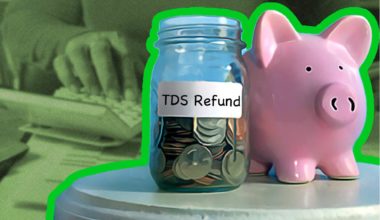A home loan is a loan taken out to finance the purchase of a property, typically a house or an apartment. It is a long-term loan that is repaid over several years or decades, depending on the terms of the loan agreement. Home loans are often the largest financial obligation that people take on in their lifetimes, and they enable many individuals and families to achieve the dream of homeownership.
Significance of a Home Loan
The significance of a home loan in homeownership is that it provides access to funds that would otherwise be difficult to accumulate in a short amount of time. By spreading the cost of a home purchase over many years, a home loan makes it possible for people to afford a home that they might not otherwise be able to afford with their savings alone. Additionally, by making regular loan payments, homeowners build equity in their property over time, which can be used as collateral for future loans or as a source of wealth.
One of the key benefits of taking out a home loan is the income tax benefit that borrowers can claim on the interest and principal payments they make toward their loans. Under the Income Tax Act, borrowers are eligible for tax deductions on the interest and principal components of their home loan. This can significantly reduce their tax liability and provide them with more disposable income to meet other financial goals. The amount of tax benefit depends on various factors such as the loan amount, interest rate, and the borrower’s tax bracket.
What are the Tax Benefits of Home Loans?
There are two main tax benefits associated with home loans in many countries:
- Deduction on interest payment
Borrowers can claim a deduction on the interest they pay on their home loan, which reduces their taxable income. This deduction is available for both self-occupied and rented properties. The maximum deduction amount for interest payment varies from country to country, but in most cases, it is up to a certain limit or a percentage of the loan amount. There are also some conditions that must be met to claim this deduction, such as the loan must be taken for the purchase or construction of a residential property and the construction of the property should be completed within a specified period.
- Deduction on principal repayment
Borrowers can also claim a deduction on the principal component of their home loan repayment, which is available for self-occupied properties only. The maximum deduction amount for principal repayment also varies from country to country, but in most cases, it is up to a certain limit or a percentage of the loan amount. There are also some conditions that must be met to claim this deduction, such as the loan must be taken for the purchase or construction of a residential property and the construction of the property should be completed within a specified period.
These tax benefits on home loans are intended to incentivize homeownership, as well as provide some relief to borrowers who are taking on a significant financial commitment. It is important for borrowers to understand the tax implications of their home loan so that they can maximize their tax benefits and avoid any potential penalties for non-compliance with tax regulations.
Tax Benefits on Joint Home Loans
When two or more individuals take a home loan together, they are known as co-borrowers. In such cases, the tax benefits on the home loan are available to all co-borrowers in proportion to their share in the loan. Here are the tax benefits on joint home loans:
- Deduction on interest payment
Each co-borrower can claim a deduction on the interest they pay on the home loan in proportion to their share in the loan. For example, if two co-borrowers take a home loan with a 50-50 share, each borrower can claim a deduction of 50% of the interest paid. The maximum deduction amount for interest payment is usually capped at a certain limit or a percentage of the loan amount.
- Deduction on principal repayment
Each co-borrower can also claim a deduction on the principal component of the home loan repayment in proportion to their share in the loan. For example, if two co-borrowers take a home loan with a 50-50 share, each borrower can claim a deduction of 50% of the principal repayment. The maximum deduction amount for principal repayment is usually capped at a certain limit or a percentage of the loan amount.
- Joint ownership
If the property is jointly owned by the co-borrowers, they can claim deductions on the interest and principal component of the loan based on their share in the property. For example, if two co-borrowers jointly own a property with a 50-50 share, each borrower can claim a deduction of 50% of the interest and principal component of the home loan repayment.
It is important to note that the tax benefits on joint home loans are available only if the co-borrowers are also co-owners of the property. Additionally, each co-borrower must meet the conditions specified by the tax laws to claim the tax benefits. Therefore, it is recommended that co-borrowers consult with a tax advisor to understand the tax implications of their joint home loan and ensure compliance with the applicable tax laws.
Wrapping it Up:
Income tax benefits on home loans are a significant incentive for homeownership, and they can help borrowers reduce their taxable income and save money on taxes. The two main tax benefits associated with home loans are the deduction on interest payments and the deduction on principal repayment.
Co-borrowers of a home loan can also claim tax benefits in proportion to their share in the loan, and tax benefits on a second home loan depend on whether the second property is self-occupied or let out.
It is important for home loan borrowers to understand the tax implications of their loan, including the tax benefits available and the conditions that must be met to claim them. Borrowers should consult with a tax advisor to ensure compliance with the applicable tax laws and maximize their tax benefits.
What is the maximum deduction allowed on interest payments for a home loan?
Can I claim a deduction on the principal repayment of a home loan?
Can co-borrowers of a home loan claim tax benefits?
Can I claim tax benefits on a second home loan?
Do I need to submit any documents to claim the tax benefits on a home loan?
Can I claim tax benefits on a home loan if I am paying EMIs to a friend or relative?
Can I claim tax benefits on a home loan if I have taken a top-up loan?
Related News
Received Income Tax Notice? Here’s Why










